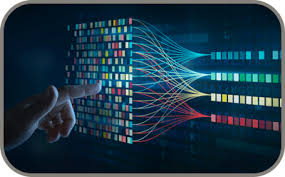 Topic Cluster Planning – Boost Topical Authority Like a Pro!
Topic Cluster Planning – Boost Topical Authority Like a Pro!
The Future of DevOps: How AI is Revolutionizing Software Development
Written by sonalika verma » Updated on: June 17th, 2025

In the rapidly evolving landscape of software development, the integration of Artificial Intelligence (AI) into DevOps practices is reshaping how teams build, test, and deploy applications. The fusion of AI in DevOps not only enhances efficiency but also drives innovation, making it a critical component of modern software development. This article explores the transformative impact of AI in DevOps, highlighting key trends, benefits, and future possibilities.
Understanding AI in DevOps
AI in DevOps refers to the application of machine learning and data analytics to streamline development processes, enhance collaboration, and improve the overall quality of software products. By leveraging AI technologies, organizations can automate repetitive tasks, predict potential issues, and gain insights from vast amounts of data generated throughout the development lifecycle.
Key Benefits of AI in DevOps
1. Enhanced Automation
One of the most significant advantages of integrating AI in DevOps is the increased level of automation it offers. AI-driven tools can automate various aspects of the development pipeline, including code integration, testing, and deployment. This not only reduces manual effort but also minimizes human error, leading to faster and more reliable releases.
2. Predictive Analytics
AI algorithms can analyze historical data and predict future outcomes, allowing teams to anticipate potential bottlenecks and issues before they occur. For instance, predictive analytics can help identify which parts of the codebase are most prone to bugs, enabling developers to focus their efforts on high-risk areas. This proactive approach improves overall software quality and reduces downtime.
3. Intelligent Monitoring and Incident Management
AI can enhance monitoring capabilities by analyzing system performance data in real time. With AI-driven monitoring tools, organizations can quickly detect anomalies, diagnose issues, and implement corrective actions before they escalate into significant problems. This level of intelligent monitoring ensures that software systems remain operational and performant.
4. Improved Collaboration
AI tools facilitate better communication and collaboration among team members. By providing insights into project progress and identifying dependencies, AI can help teams work more cohesively. Additionally, AI-driven chatbots can assist in answering common queries, freeing up team members to focus on more complex tasks.
5. Continuous Learning and Improvement
AI in DevOps promotes a culture of continuous learning. Machine learning models can analyze past project performance, enabling teams to identify patterns and areas for improvement. This iterative feedback loop fosters an environment where teams can continually refine their processes and practices, ultimately leading to higher quality software.
Trends Shaping the Future of AI in DevOps
1. AI-Driven DevSecOps
As security becomes increasingly important in the software development lifecycle, the integration of AI in DevSecOps is gaining traction. AI tools can identify vulnerabilities in code and infrastructure, ensuring that security measures are integrated from the outset rather than as an afterthought. This shift not only enhances security but also aligns with the principles of continuous integration and delivery.
2. Increased Focus on Data-Driven Decision Making
With the rise of AI in DevOps, organizations are placing greater emphasis on data-driven decision-making. Teams can leverage data analytics to inform their strategies, from feature prioritization to resource allocation. This data-centric approach ensures that decisions are backed by empirical evidence, resulting in more effective outcomes.
3. Adoption of AI-Powered CI/CD Tools
Continuous Integration and Continuous Deployment (CI/CD) tools are becoming smarter with the integration of AI. These tools can analyze code changes, recommend improvements, and even automate deployment processes based on predictive insights. The result is a more streamlined and efficient CI/CD pipeline that accelerates the delivery of high-quality software.
4. Enhanced User Experience Through AI-Driven Insights
AI can also play a crucial role in enhancing user experience. By analyzing user behavior and feedback, AI-driven tools can provide valuable insights into how applications are being used. This information can guide developers in making data-driven enhancements, ultimately leading to more user-centric software products.
Conclusion
The future of DevOps is undoubtedly intertwined with the advancements in AI technology. By integrating AI into DevOps practices, organizations can unlock new levels of efficiency, quality, and innovation. As AI in DevOps continues to evolve, it will redefine the software development landscape, enabling teams to deliver exceptional products faster and more reliably. Embracing this transformation is not just an option but a necessity for organizations looking to stay competitive in the digital age.
In summary, the integration of AI in DevOps is revolutionizing how software is developed, setting the stage for a future where intelligent automation, predictive analytics, and data-driven decision-making become the norm. Organizations that harness these capabilities will be well-equipped to navigate the complexities of modern software development and meet the ever-changing demands of their users.
Note: IndiBlogHub features both user-submitted and editorial content. We do not verify third-party contributions. Read our Disclaimer and Privacy Policyfor details.
Copyright © 2019-2025 IndiBlogHub.com. All rights reserved. Hosted on DigitalOcean for fast, reliable performance.

















